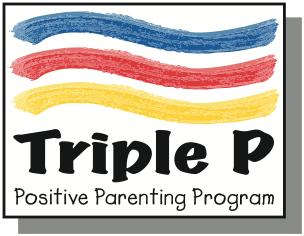Pay attention to your child
When
your child wants to show you something, stop what you are doing and pay
attention to your child. It is important to spend frequent, small amounts of
time with your child doing things that you both enjoy.
Give your child physical affection
Give your
child lots of physical affection – children often like hugs, cuddles, and
holding hands.
Talk to your child
Talk to
your child about things he/she is interested in and share aspects of your day
with your child.
Praise your child a lot
Give
your child lots of descriptive praise when they do something that you would
like to see more of, e.g., “Thank you for doing what I asked straight away.“
Offer your child plenty of interesting activities
Children
are more likely to misbehave when they are bored so provide lots of engaging
indoor and outdoor activities for your child, e.g., playdough, colouring in,
cardboard boxes, dress ups, playhouses, etc.
Teach your child new skills
Teach
your child new skills by first showing the skill yourself, then giving your
child opportunities to learn the new skill. For example, speak politely to each
other in the home. Then, prompt your child to speak politely (e.g., say
“please” or “thank you”), and praise your child for their efforts.
Set clear boundaries
Set
clear limits on your child’s behaviour. Sit down and have a family discussion
on the rules in the home. Let your child know what the consequences will be if
they break the rules.
Stay calm
If your
child misbehaves, stay calm and give them a clear instruction to stop
misbehaving and tell them what you would like them to do instead (e.g., “Stop
fighting; play nicely with each other.” Praise your child if they stop. If they
do not stop, follow through with an appropriate consequence.
Have realistic expectations
Have
realistic expectations. All children misbehave at times and it is inevitable
that you will have some discipline hassles. Trying to be the perfect parent can
set you up for frustration and disappointment.
Take care of yourself
Look
after yourself. It is difficult to be a calm, relaxed parent if you are
stressed, anxious, or depressed. Try to find time every week to let yourself
unwind or do something that you enjoy.
"The program has made me realise that the short moments of play with my son, when I devote my time just to him, can be more than an expensive gift or trip. I now try to give him undisturbed attention several times a day, perhaps reading to him for a while, talking to him about something he likes, or just cuddling him."
- Honza from Chrudim -
more stories"In theory, I knew basically everything about parenting, but it was only through Triple P that everything clicked together, and I learned how to put positive parenting strategies into practice, and I am thrilled by how well it works."
- Marie from Karlovy Vary -
more stories"Thanks to the Triple P course I realized that all parents have similar problems. We all deal with difficult situations. It's not just me who often doesn't know what to do. The opportunity to share my experiences in a group was empowering and enriched me a lot. I think our family is a lot happier overall now."
- Pavla from Tábor -
more stories"The program has shown me that my role as a parent is even more important than I thought. The example I set and the way I communicate with my children has the biggest impact on them. Now I plan more and think ahead what I will do if there is a problem. A lot of things then work out well."
- Katka from Prague -
more stories